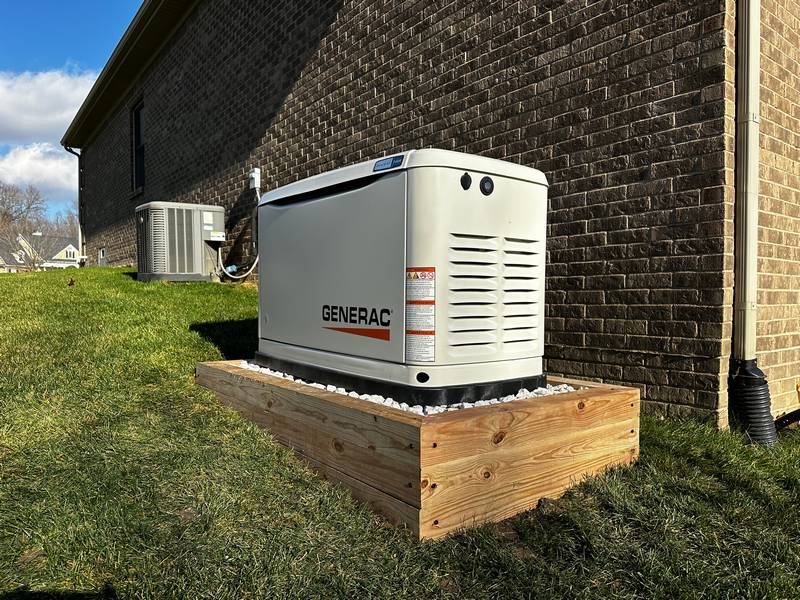When it comes to incorporating a backup power system into a solar-powered household, there are two primary options: solar batteries and generators. While both devices offer seamless backup power during outages, they each have distinct features and serve different purposes. If you’re considering adding backup power to your solar system, it’s important to understand the differences between these two choices to make an informed decision. In this blog post, we will explore the differences between solar batteries and generators, as well as their respective advantages and disadvantages.
How Batteries Work
Excess electricity generated by your solar panels can be efficiently stored in solar batteries for future use. This stored energy becomes invaluable during power outages or when your panels are unable to produce sufficient electricity.
The capacity and type of battery play a crucial role in determining its energy storage capabilities. For instance, a single Tesla Powerwall offers 13.5 kWh of energy storage and 5 kWh of continuous power, making it suitable for powering essential electrical devices during an outage. To achieve comprehensive coverage for your entire home, it is likely that you would require two or more batteries.
Per the guidelines from the National Fire Protection Association, the storage location of batteries is determined by their size. Irrespective of the size, batteries installed indoors should be placed in a room with fire-resistant walls. In regions with severe weather conditions, such as Michigan, it is advisable to keep batteries indoors.
Pros of Batteries
Solar batteries offer a key advantage: reducing your reliance on the grid. This not only saves you money but also lessens your environmental impact. When your solar panels can’t generate enough power for your home, stored energy in your batteries comes to the rescue. This clean and cost-free energy source spares you from relying on expensive and polluting grid energy.
Solar batteries offer several advantages, including low maintenance and a long lifespan. In fact, they can endure for up to two decades, making them an excellent investment for households with high energy demands.
Moreover, there are community-based benefits to using batteries that should not be overlooked. By employing “peak shaving” techniques, utilities can leverage distributed battery systems during periods of high energy demand, reducing reliance on dirtier and costlier energy sources. Additionally, the use of solar batteries can help decrease the state’s dependence on imported energy and promote the utilization of renewable energy sources in Michigan.
Cons of Batteries
When using batteries in conjunction with solar power, it’s important to consider their finite storage capacity. While you can recharge them when the sun is shining, low sunlight conditions may prevent your battery from fully refilling. In such cases, you must rely on the energy already stored in your battery.
 How Generators Work
How Generators Work
Now, let’s talk about generators. Generators can produce electricity using various fuel sources like natural gas, propane, gasoline, or diesel. Like an air conditioning unit or heat pump, they are typically stored outside of a home. Generac offers a range of generator systems, with a range of sizes, allowing you to choose the one that suits your energy needs.
When a power outage occurs, your generator will automatically activate and provide power to your home’s electrical system. With Generac generators, you can conveniently monitor the status of your device through a mobile app.
Pros of Generators
Generators offer a range of advantages over solar batteries. Generators are highly versatile and you can program them to cover only your energy needs. Whether you only need to power your household appliances, or if you also would like to run your AC unit or charge your EV, you can tailor your generator to meet your energy needs.
Moreover, generators are known for their high reliability, making them an excellent choice during emergencies like storms or power outages—which can be frequent, especially during Michigan’s winters! They automatically activate when the grid goes down, providing power to entire households or essential appliances, depending on the generator’s size.
Cons of Generators
On the downside, generators require regular maintenance and rely on fossil fuels, resulting in harmful emissions that can harm the environment. Additionally, the cost of purchasing and operating a generator can be significant, especially if you need a large one to power energy-intensive appliances or an entire house. Like cars needing frequent oil changes, diligent check-ups and maintenance are essential to ensure the longevity of generators, which further adds to their operating costs.
Making Your Decision
When deciding between solar batteries and generators, it ultimately comes down to your specific energy requirements and priorities. Solar batteries provide an eco-friendly source of electricity, allowing homeowners to save money by reducing their reliance on the grid. On the other hand, generators offer backup power during outages, but they can be costly to operate and rely on fossil fuels that are damaging to the environment.
No matter which backup power system you choose, you can rest assured that your home will be well-prepared for any weather. Feel free to reach out to our team for more information!

